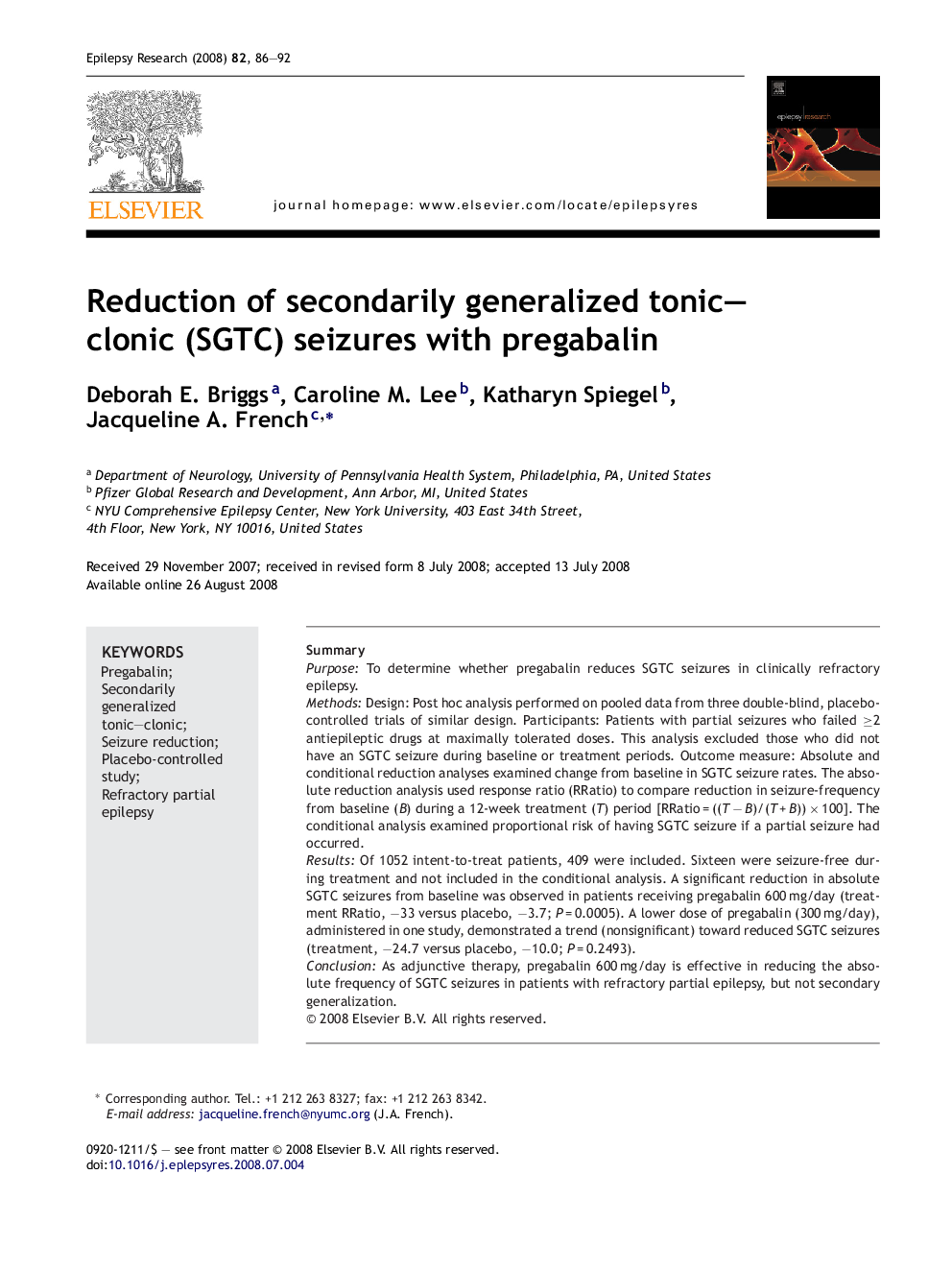| Article ID | Journal | Published Year | Pages | File Type |
|---|---|---|---|---|
| 3052927 | Epilepsy Research | 2008 | 7 Pages |
SummaryPurposeTo determine whether pregabalin reduces SGTC seizures in clinically refractory epilepsy.MethodsDesign: Post hoc analysis performed on pooled data from three double-blind, placebo-controlled trials of similar design. Participants: Patients with partial seizures who failed ≥2 antiepileptic drugs at maximally tolerated doses. This analysis excluded those who did not have an SGTC seizure during baseline or treatment periods. Outcome measure: Absolute and conditional reduction analyses examined change from baseline in SGTC seizure rates. The absolute reduction analysis used response ratio (RRatio) to compare reduction in seizure-frequency from baseline (B) during a 12-week treatment (T) period [RRatio = ((T − B)/(T + B)) × 100]. The conditional analysis examined proportional risk of having SGTC seizure if a partial seizure had occurred.ResultsOf 1052 intent-to-treat patients, 409 were included. Sixteen were seizure-free during treatment and not included in the conditional analysis. A significant reduction in absolute SGTC seizures from baseline was observed in patients receiving pregabalin 600 mg/day (treatment RRatio, −33 versus placebo, −3.7; P = 0.0005). A lower dose of pregabalin (300 mg/day), administered in one study, demonstrated a trend (nonsignificant) toward reduced SGTC seizures (treatment, −24.7 versus placebo, −10.0; P = 0.2493).ConclusionAs adjunctive therapy, pregabalin 600 mg/day is effective in reducing the absolute frequency of SGTC seizures in patients with refractory partial epilepsy, but not secondary generalization.
